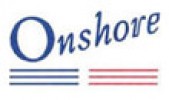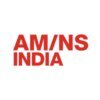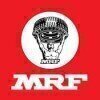Maintenance Supervisor
100+ Maintenance Supervisor Interview Questions and Answers

Asked in Mahindra & Mahindra

Q. What are the transformer ratings?
Transformers are rated based on their voltage, current, and power capacity, indicating their efficiency and application in electrical systems.
Transformers are rated in kilovolt-amperes (kVA) or megavolt-amperes (MVA).
A 100 kVA transformer can handle a maximum load of 100 kVA under ideal conditions.
The rating indicates the maximum power the transformer can safely handle without overheating.
For example, a 500 kVA transformer is suitable for medium-sized commercial buildings.

Asked in Hindalco Industries

Q. Which metal is liquid at room temperature?
Mercury is a liquid metal at room temperature.
Mercury is the only metal that is liquid at room temperature
It has a silvery appearance
Mercury is commonly used in thermometers and barometers

Asked in Amazon

Q. What is your knowledge of computers?
As a Maintenance Supervisor, I have knowledge about computer hardware, software, and networking.
Proficient in troubleshooting computer hardware and software issues
Knowledge of operating systems such as Windows and Linux
Familiarity with networking concepts and protocols
Experience with computer maintenance and upgrades
Ability to manage and maintain computer inventory
Understanding of cybersecurity best practices
Proficiency in using Microsoft Office and other productivity softwar...read more

Asked in Manweir LLC

Q. What are PLC and Ladder Logic?
PLC (Programmable Logic Controller) is a digital computer used for automation of electromechanical processes. Ladder logic is a programming language used to program PLCs.
PLC is a specialized computer used to control machinery and processes in industrial settings
Ladder logic is a programming language used to create programs for PLCs
Ladder logic uses graphical symbols to represent logic functions and control sequences
PLCs and ladder logic are commonly used in manufacturing, aut...read more

Asked in Banas Dairy

Q. What kaizen improvements did you implement in your last company?
In my last company, I implemented several Kaizen initiatives to enhance efficiency and reduce waste in maintenance operations.
Streamlined the preventive maintenance schedule, reducing downtime by 20%.
Introduced a visual management system for tracking maintenance tasks, improving team communication.
Conducted regular training sessions for staff on best practices, leading to a 15% increase in productivity.
Implemented a feedback loop for continuous improvement, allowing team memb...read more
Asked in Sirsaganj Public School

Q. How do you maintain discipline?
Maintaining discipline requires clear expectations, consistent enforcement, positive reinforcement, and effective communication.
Set clear expectations for behavior and performance.
Consistently enforce rules and policies.
Provide positive reinforcement for good behavior.
Communicate effectively with team members about expectations and consequences.
Lead by example and demonstrate the behavior you expect from others.
Maintenance Supervisor Jobs




Asked in Trident Group

Q. How many types of maintenance are there?
There are typically three types of maintenance: preventive, corrective, and predictive.
Preventive maintenance involves routine inspections and tasks to prevent breakdowns.
Corrective maintenance is performed in response to equipment failure or malfunction.
Predictive maintenance uses data and analytics to predict when maintenance should be performed.
Examples: changing oil in a car regularly (preventive), fixing a broken belt on a machine (corrective), using sensors to monitor e...read more

Asked in Onshore Construction

Q. What is a duty time table?
A duty time table is a schedule that outlines the specific tasks and responsibilities assigned to individuals within a maintenance team.
Duty time tables typically include information such as shift timings, assigned tasks, equipment maintenance schedules, and contact information for team members.
They help ensure that all necessary maintenance tasks are completed in a timely manner and that team members are aware of their responsibilities.
For example, a duty time table for a ma...read more
Share interview questions and help millions of jobseekers 🌟


Asked in Novel Office

Q. What is Transferred
Transferred refers to the movement of something from one place or person to another.
Transferred can refer to physical movement, such as transferring materials from one location to another.
It can also refer to the transfer of ownership or responsibility, such as transferring a project to a new team member.
In the context of maintenance, transferred can refer to transferring equipment or tools from one department to another.
Transferred can also refer to the transfer of informati...read more

Asked in Sanden Vikas

Q. What is the company policy?
The company policy is to prioritize safety, efficiency, and quality in all maintenance operations.
Company policy emphasizes safety as the top priority in all maintenance activities.
Efficiency is also a key focus, with procedures in place to streamline maintenance processes.
Quality control measures are implemented to ensure that maintenance work meets high standards.
Employees are expected to adhere to all company policies and procedures related to maintenance operations.

Asked in Dinshaws

Q. What are the functions of the discharge line and suction line?
The discharge line carries fluid away from a system, while the suction line brings fluid into it, crucial for system efficiency.
Discharge line: transports fluid from the pump to the system or storage.
Suction line: draws fluid into the pump from the source.
Example: In HVAC systems, the discharge line moves refrigerant to the condenser, while the suction line brings it back to the compressor.
Proper sizing of both lines is essential to prevent pressure drops and ensure efficient...read more

Asked in ArcelorMittal Nippon Steel

Q. What is earth leakage?
Earth leakage refers to the unintended flow of electrical current to the ground, posing safety risks and equipment damage.
Occurs when insulation fails, allowing current to escape to the earth.
Can lead to electric shocks, fires, or equipment malfunction.
Commonly detected using earth leakage circuit breakers (ELCBs).
Example: A faulty appliance causing current to leak into the ground.
Regular maintenance and testing can prevent earth leakage issues.
Asked in Starlit Suites

Q. How does the AC system work?
The AC system works by removing heat from the air inside a building and releasing it outside.
The AC system uses refrigerant to absorb heat from the indoor air.
The refrigerant then travels to the outdoor unit where it releases the heat.
The cooled refrigerant returns to the indoor unit to absorb more heat.
The fan in the indoor unit blows the cooled air back into the building.
Regular maintenance, such as cleaning filters and checking for leaks, is important for efficient operati...read more

Asked in Jindal Steel and Power

Q. What is a starter?
A starter is a device used to start an engine or motor by supplying it with the initial power needed to get it running.
A starter typically consists of a motor, solenoid, and gears to engage the engine's flywheel.
It is commonly used in vehicles to start the engine by turning the crankshaft until the combustion process begins.
Starters can be electric, pneumatic, or hydraulic depending on the application.
In industrial settings, starters are used to power up machinery and equipme...read more
Asked in Starlit Suites

Q. What is a working VRF (Variable Refrigerant Flow) system?
A VRF system is a type of HVAC system that uses refrigerant as the cooling and heating medium, allowing for variable flow and individual control of multiple indoor units.
VRF systems use a single outdoor unit connected to multiple indoor units.
Each indoor unit can be controlled independently for personalized comfort.
Refrigerant flow is varied based on the heating or cooling requirements of each zone.
VRF systems are energy efficient and provide precise temperature control.
Examp...read more

Asked in Bajaj Motors

Q. Where are hydraulic pumps used?
Hydraulic pumps are used to convert mechanical energy into hydraulic energy, powering various machinery and equipment.
Used in construction equipment like excavators and bulldozers for lifting and moving heavy loads.
Common in manufacturing for operating presses and conveyors.
Essential in automotive systems for power steering and braking.
Utilized in aircraft for controlling landing gear and flaps.

Asked in Dinshaws

Q. What is a refrigerant?
A refrigerant is a substance used in cooling systems to absorb and release heat during phase changes.
Refrigerants can be gases or liquids, such as R-134a or ammonia.
They undergo phase changes to absorb heat from the environment.
Commonly used in air conditioning and refrigeration systems.
Refrigerants are classified as natural (like CO2) or synthetic (like HFCs).
Environmental regulations impact the use of certain refrigerants due to their global warming potential.

Asked in UPL

Q. What is a ton of refrigeration?
A ton of refrigeration is a unit of measurement for cooling capacity, equivalent to the heat removal of melting one ton of ice in 24 hours.
1 ton of refrigeration can remove 12,000 BTUs (British Thermal Units) per hour.
It is commonly used in HVAC systems to describe cooling capacity.
For example, a 5-ton air conditioning unit can cool a space at a rate of 60,000 BTUs per hour.
The term originates from the amount of heat absorbed when one ton of ice melts.

Asked in Jindal Power

Q. What is primary maintenance?
Primary maintenance refers to essential tasks that ensure equipment and systems operate efficiently and reliably.
Involves routine inspections to identify potential issues before they escalate.
Includes preventive maintenance tasks like lubrication, cleaning, and adjustments.
Examples: Changing oil in machinery, replacing filters in HVAC systems.
Focuses on maintaining safety standards and compliance with regulations.
Aims to minimize downtime and extend the lifespan of equipment.

Asked in Samvardhana Motherson Group

Q. How do you handle machine maintenance breakdowns?
Breck daune refers to a systematic approach to machine maintenance, ensuring optimal performance and longevity.
Implement a preventive maintenance schedule to reduce unexpected breakdowns.
Use condition monitoring tools to assess machine health, like vibration analysis.
Train staff on proper machine operation to minimize wear and tear.
Document all maintenance activities for future reference and compliance.
Asked in Samosa Party

Q. Kitchen equipment problem & solution
Kitchen equipment problems can range from malfunctioning appliances to leaks or electrical issues.
Regular maintenance and cleaning can prevent many common kitchen equipment problems.
Promptly address any issues to prevent them from escalating and causing further damage.
Train staff on proper use and care of kitchen equipment to prevent misuse and damage.
Have a reliable vendor for repairs and replacements in case of major issues.
Examples: Regularly cleaning and descaling coffee ...read more

Asked in Ferro Alloys Corporation

Q. How do you check and perform maintenance?
Regular checks and maintenance ensure equipment reliability, safety, and efficiency in operations.
Conduct routine inspections to identify wear and tear, such as checking for leaks in machinery.
Implement a preventive maintenance schedule, like changing filters in HVAC systems every three months.
Utilize checklists for daily, weekly, and monthly maintenance tasks to ensure nothing is overlooked.
Train staff on proper equipment use to minimize damage and extend lifespan, such as p...read more

Asked in Kotak Mahindra Bank

Q. What is your notice period?
Notice periods vary by company policy, typically ranging from 2 weeks to 1 month, depending on the role and contract terms.
Standard notice period is often 2 weeks for entry-level positions.
Management roles may require a notice period of 1 month or more.
Some companies have specific policies, such as 30 days for all employees.
In certain industries, like healthcare, notice periods can be longer due to staffing needs.
Asked in Starlit Suites

Q. Can you draw the single line diagram?
Yes, I can draw a single line diagram.
I have experience creating single line diagrams for electrical systems.
I am familiar with industry standards and symbols used in single line diagrams.
I can accurately represent the electrical connections and components in a single line diagram.
I have used software tools like AutoCAD or Visio to create single line diagrams.
I can interpret and create single line diagrams for troubleshooting and maintenance purposes.

Asked in NTPC

Q. Types of Gear, types of valve
There are various types of gears and valves used in maintenance.
Types of gears include spur, helical, bevel, worm, and planetary gears.
Types of valves include gate, globe, ball, butterfly, and check valves.
Each type of gear and valve has its own unique characteristics and applications.
Proper maintenance and lubrication is essential for the longevity and efficiency of gears and valves.

Asked in Lucas-TVS

Q. All types of maintenance
All types of maintenance refer to preventive, corrective, predictive, and condition-based maintenance.
Preventive maintenance involves scheduled inspections and repairs to prevent breakdowns.
Corrective maintenance is performed after a failure has occurred.
Predictive maintenance uses data analysis to predict when maintenance is needed.
Condition-based maintenance involves monitoring equipment to detect signs of wear and tear.
Examples include changing oil in a car, replacing a br...read more

Asked in Senco Gold

Q. Tell me about yourself.
I am a dedicated Maintenance Supervisor with over 10 years of experience in facility management and team leadership.
Over 10 years of experience in maintenance and facility management.
Led a team of 15 technicians, improving response time to maintenance requests by 30%.
Implemented a preventive maintenance program that reduced equipment downtime by 25%.
Skilled in budgeting and cost control, successfully managing a $500,000 annual maintenance budget.
Strong communication skills, f...read more

Asked in Mahindra & Mahindra

Q. Safety of dg..
Ensuring safety of diesel generators is crucial for preventing accidents and ensuring uninterrupted power supply.
Regular maintenance and inspection of the generators
Proper training of personnel handling the generators
Installation of safety devices such as automatic shut-off systems
Adherence to safety regulations and guidelines
Emergency response plan in case of accidents

Asked in Cadila Pharmaceuticals

Q. Preventive maintenance of machine
Preventive maintenance ensures machines operate efficiently, reducing downtime and extending equipment lifespan.
Regular inspections: Check for wear and tear, such as frayed belts or loose bolts.
Lubrication: Apply grease or oil to moving parts to minimize friction and prevent overheating.
Calibration: Ensure machines are set to the correct specifications to maintain accuracy.
Replacement of parts: Schedule timely replacement of components like filters or seals before they fail.
D...read more

Asked in Chemfab Alkalis

Q. Heat exchanger reduce the heat
Heat exchangers reduce heat by transferring thermal energy between two or more fluids.
Heat exchangers are devices used to transfer thermal energy between fluids.
They are commonly used in HVAC systems, power plants, and industrial processes.
Heat exchangers can be classified into different types such as shell and tube, plate, and finned.
They work based on the principle of heat transfer through conduction, convection, or radiation.
Heat exchangers can be used for both heating and...read more
Interview Questions of Similar Designations
Interview Experiences of Popular Companies








Reviews
Interviews
Salaries
Users


















